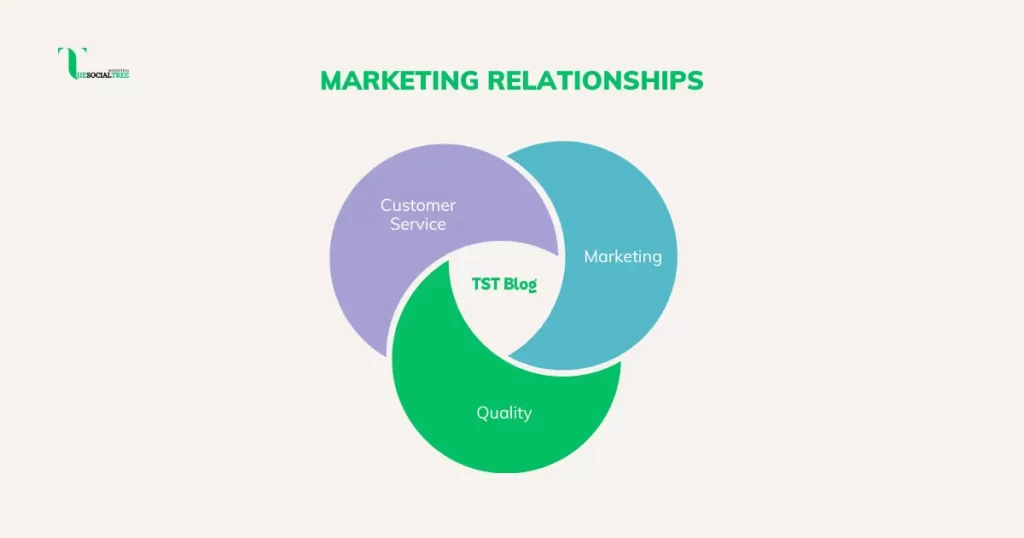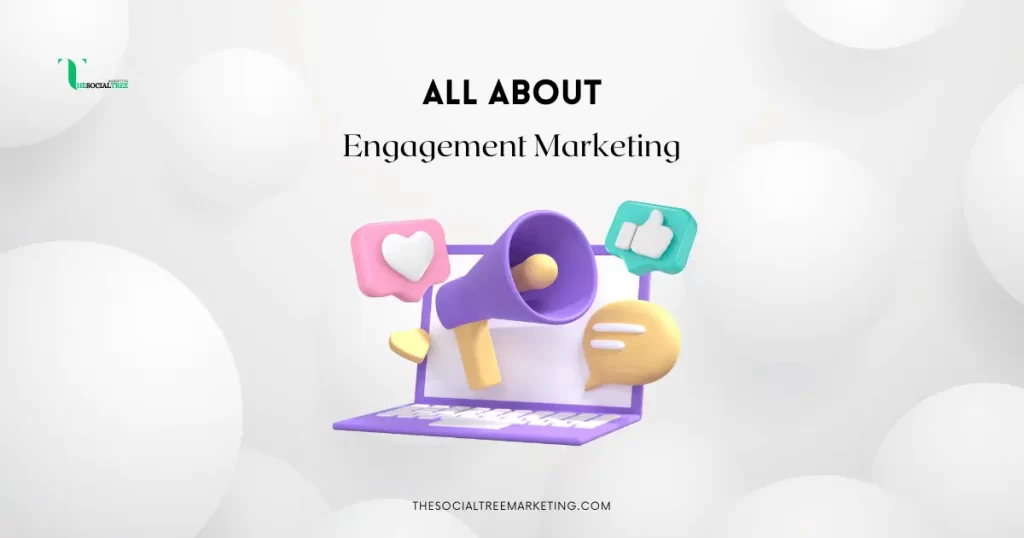Relationship Marketing, Experimental Marketing, Engagement Marketing, and CRM, these three names are used for one marketing strategy. In this type of marketing, we focus on customers’ interests, behavior, and habits.
CRM Stands for Customer Relationship Marketing
The use of strategic content to engage customers and invite them to interact with the brand is called engagement marketing. It is also called experimental marketing or relationship marketing.
In experimental marketing, businesses see customers as interactive collaborators instead of just recipients of numerous generalized marketing messages. And approach them in different experimental ways.

It uses high-quality, targeted content in two ways which ensures that the conversation between your business and your audience creates and maintains meaningful interaction. That’s why it is also called relationship marketing.
Moreover, in engagement marketing, you can publish thought-provoking posts or tweets that get replies, tell your audiences to upload a photo of their funniest moments, create short videos, and run surveys.
The main purpose of engagement marketing is to engage the audience.
In engagement marketing, marketers use two-way communication channels like emails, social media, and virtual events marketing, providing a high degree of personalization. These channels establish strong and authentic relationships with customers.
In addition to this, engagement marketing focuses on the emotional states that guide buyers toward their outcome, unlike traditional marketing which takes a transactional approach to customers.
Besides this, you can have meaningful interactions with customers based on empathy.
Table of Contents
ToggleWhat is Relationship Marketing?
As you can understand by its name you should build relations with your audience. Relationship marketing is not just selling things to customers.
Actually, businesses try to be friends with their customers. Relationship marketing is a customer satisfaction marketing method. This marketing method emphasizes establishing deep-rooted connections with prospects to increase ROI.
Relationship marketing pivots relationships between businesses and customers. You need to serve your customers well. Besides, prioritize their needs and give your customers reasons to continue purchasing your products or services. Tip: Treat your customers as you treat your friends and family, and make your customers feel special.
In Relationship marketing trust is the only key to success. Building trust, understanding your customer’s needs, and keeping them safe with your product or service is crucial. By doing this your customers want to buy your product or service again and again. Mutual benefits and communication both can be beneficial in a productive and long-lasting relationship between businesses and customers.
Principles of Relationship Marketing
1- Relationship-centered
One-way communication is a very typical marketing strategy. It includes SEO-driven blog posts and a feature-centered website. Marketers today fail to connect, listen, and establish long-term strong relationships with their audience without two-way communication.
2- Full-funnel Marketing
The buyer’s journey is neither linear nor a funnel. It is a complex intercommunicating path of brand experiences and marketers need to take ownership of fostering effective relationships at every point.
3- Audience obsessed
Start identifying your audience’s desired outcome; do not focus on pain points. It will automatically shift your attention to helping them reach their objective by pinpointing the internal drivers that motivate them.
4- Community
Marketers should need to learn how to empathize, listen, take risks, and encourage bravery in their audience.
Tip: Make sure your business strategy reflects these principles.
Engagement marketing provides two crucial benefits in digital marketing which are lead generation, and increased brand authority.
Benefits of Relationship Marketing
1- Qualified leads
The lead generation strategy can result in soft leads that require gentle persuasion or cold leads that will cost a lot of time and money to convert.
In simple words, a strong Relationship marketing strategy will help improve your conversion rates among your loyal customer base, while establishing strong leads based on referrals.
2- Enhance brand authority
The Company’s reputation is based on the company’s transparency and ability to represent the demographic you serve. Relationship marketing is used to determine your demographics’ interests and buying habits, you situate your company as an industry authority.
Engagement marketing is also used to increase brand awareness and authority.
Businesses use different techniques and strategies to engage with their target audience, encourage marketers to call prospects, bridge the gap between marketing and sales, meet your prospects where they are, consistency in messaging, etc.
Relationship Marketing Strategies
1- Interactive webinars
In this modern era, webinars are engaging and interactive. With the help of these webinars, you can meet your audience, survey them, and build a community in real time.
How to do effective webinars?

Methods to make your webinars effective
i- Polls
Polls connect your audience and give you beneficial powers you can use both during and after the event.
ii- Chat
Effective chat is crucial to keeping your webinars interactive. It enables your audience to ask questions or give feedback.
iii- Live CTAs
Drive your attendees to a specific URL that helps them take the next step.
iv- Handouts
Provide handouts during the webinar session that increase the value of the event.
2- Encourage Marketers to call prospects
When looking to get insights into your target market, there is no replacement for talking to customers. Getting on the phone with prospects is usually seen as a Sales Development Representative’s (SDR) job, but this tactic is essential for markers.
Marketers have to construct customer engagement marketing strategies and content around customer emotions and their desired outcome and to do that, they need to talk with customers and understand what they are trying to achieve.
3- Bridge the gap between marketing and sales
Usually, marketing and sales teams work separately. Marketers often know too little about what the sales team is learning about their market through their conversations and demos.
4- Meet your prospects where they are
Relationship marketing is all about two-way interactions between your company and your target audience. To generate those interactions, share your content where your customers will see it.
5- Consistent Messaging
It is a strategy in Relationship marketing that ensures your brand‘s voice and value resonate consistently across all touchpoints. It includes crafting a cohesive narrative that reflects your brand identity and mission, delivering a unified experience to your audience.
Furthermore, consistent messaging fosters recognition and familiarity, enabling your audience to connect with your brand on a deeper level.
Conclusion:
Relationship marketing represents a set of ideas shift in how businesses approach customer relationships. With the help of meaningful interactions over one-way communication, businesses can create long-term connections that drive loyalty and advocacy.
Companies can unlock the full potential of relationship marketing and achieve their desired goals by understanding their audience, creating valuable content, encouraging interactions, and leveraging technology. It’s about creating a happy and long-lasting relationship with your customer.

